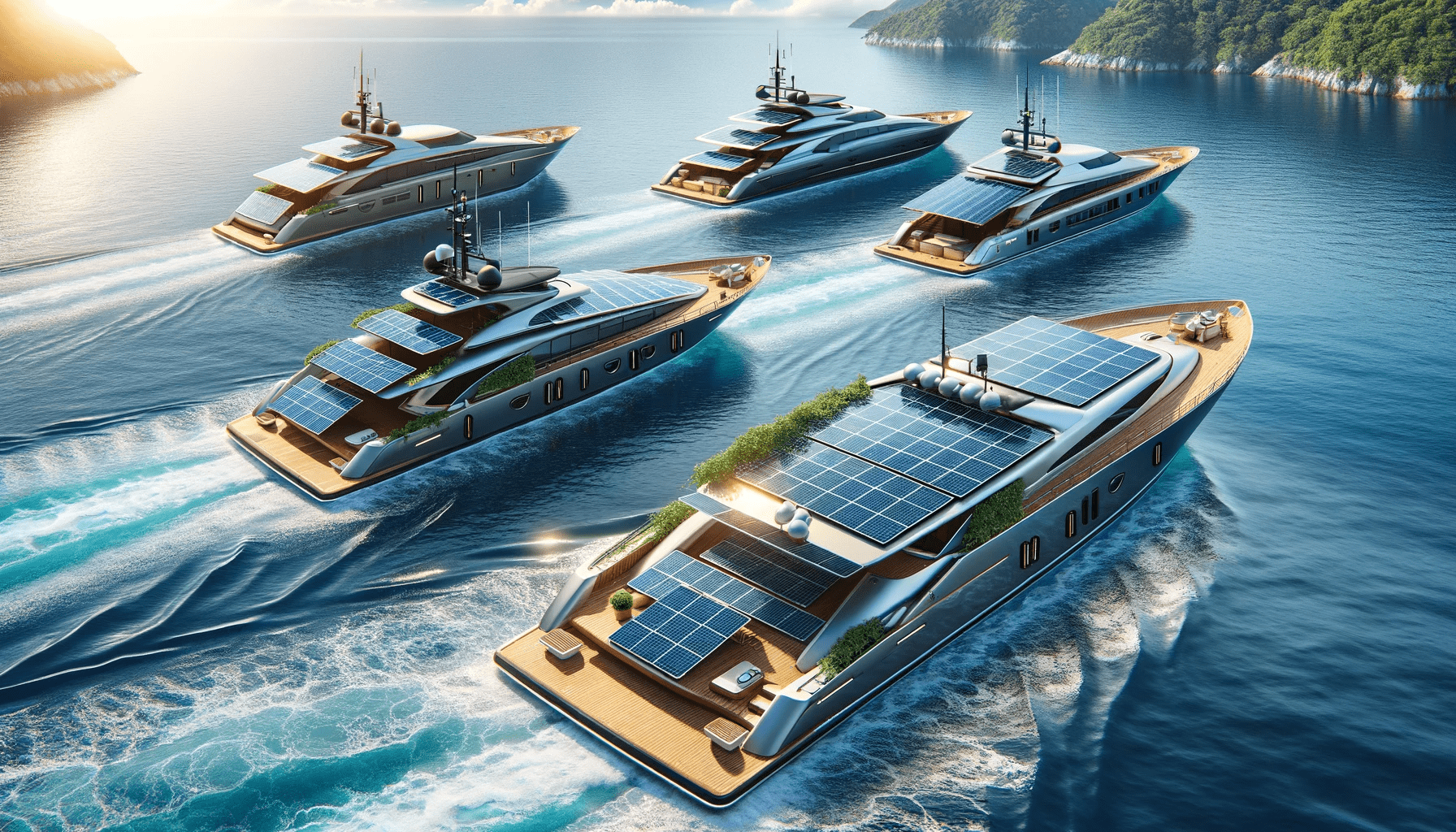General
9 Sustainable Practices for Eco-Friendly Maritime Retreats

The call for sustainable practices in every aspect of our lives has never been more pressing, especially when it comes to organizing corporate events like maritime retreats. In this article, we’ll explore nine innovative and eco-friendly practices that can make your next maritime retreat not just enjoyable, but also a step forward in corporate environmental responsibility.
Embrace the Power of Solar Energy
One of the most effective ways to ensure an eco-friendly retreat is by utilizing solar power. Solar panels can be used to power everything from lighting to heating systems on boats and at retreat locations. This not only reduces the carbon footprint but also sets a precedent for sustainable practices in corporate settings.
Sustainable Sea Travel
When planning your maritime retreat, consider opting for vessels that are designed for eco-friendly travel. These boats use less fuel and are often equipped with systems to minimize pollution. By choosing such modes of transportation, you’re contributing to a healthier marine environment.
Waste Management at Sea
Effective waste management is crucial in protecting the marine ecosystem. Encourage practices like recycling, composting, and proper disposal of waste. Providing clear instructions and facilities for waste segregation can significantly reduce the negative impact on the environment.
Eco-Friendly Accommodations
When selecting accommodation for your retreat, prioritize establishments that are known for their sustainable practices. Look for hotels or lodges that use renewable energy sources, have efficient waste management systems, and are committed to reducing their overall environmental impact.
Local and Organic Catering
Food is a central part of any corporate retreat. Opt for catering services that use locally sourced, organic produce. This not only supports local communities but also reduces the carbon footprint associated with long-distance food transportation.
Minimize Single-Use Plastics
Reducing the use of single-use plastics can significantly impact the health of our oceans. Encourage the use of reusable items like water bottles, straws, and cutlery. This small change can make a big difference in reducing plastic waste.
Responsible Activities
Choose activities that do not harm the environment. Instead of jet skiing or speed boating, consider kayaking, sailing, or paddleboarding. These activities not only have a lower environmental impact but also allow participants to connect more deeply with nature.
Educate and Engage
A maritime retreat is a perfect opportunity to educate your team about marine conservation. Include workshops or talks about the importance of protecting our oceans. This educational aspect can turn your retreat into a meaningful experience that extends beyond just relaxation and team building.
Support Local Conservation Efforts
Partner with local conservation groups to contribute positively to the area you’re visiting. This could involve beach clean-ups or supporting marine wildlife protection initiatives. It’s a great way to give back to the community and enhance team spirit.
In conclusion, organizing an eco-friendly maritime retreat is not just about enjoying the beauty of the sea; it’s about taking active steps to preserve it. By implementing these sustainable practices, you’re ensuring that your corporate retreats contribute positively to the environment and set a standard for responsible corporate behavior. For more insights on organizing impactful maritime retreats, explore our comprehensive guide on Retreats on or by the Sea/Lake.
Additionally, for further inspiration on creating engaging corporate retreats, don’t miss reading about “7 Unconventional Destinations for Corporate Retreats That Inspire Creativity” and “How to Design a Corporate Retreat That Fosters Creativity?”. These articles provide valuable insights into designing retreats that are not only enjoyable but also creatively stimulating and conducive to team building.
Eco-Friendly Transportation to the Retreat
An often-overlooked aspect of planning an eco-friendly retreat is the mode of transportation used to reach the destination. Encourage the use of public transport, carpooling, or even electric vehicles. Not only does this reduce the carbon footprint of the retreat, but it also sets a positive example for the team. Companies can go a step further by offsetting carbon emissions for air travel through various environmental initiatives. This commitment to responsible travel extends the eco-friendly ethos beyond the retreat itself.
Integrating Technology for Sustainability
Leveraging technology can play a crucial role in enhancing the sustainability of maritime retreats. Use digital tools for paperless communication and documentation, thus reducing paper waste. Additionally, apps and digital platforms can be used for organizing and scheduling retreat activities, minimizing the need for physical resources and enhancing efficiency. This not only streamlines the retreat planning process but also aligns with modern, eco-conscious practices.
Promoting Mindfulness and Well-being
An important aspect of maritime retreats is promoting mental and physical well-being, which aligns perfectly with the concept of sustainability. Incorporate mindfulness and wellness activities like yoga, meditation, or nature walks into the retreat schedule. These practices not only enhance the retreat experience but also encourage a deeper connection with the environment, fostering a sense of responsibility towards its preservation.
-
Blog1 year ago
MyCSULB: Login to CSULB Student and Employee Portal – MyCSULB 2023
-
Android App3 years ago
Cqatest App What is It
-
Android1 year ago
What Is content://com.android.browser.home/ All About in 2023? Set Up content com android browser home
-
Software2 years ago
A Guide For Better Cybersecurity & Data Protection For Your Devices
-
Latest News2 years ago
Soap2day Similar Sites And Alternatives To Watch Free Movies
-
Android2 years ago
What is OMACP And How To Remove It? Easy Guide OMACP 2022
-
Android3 years ago
What is org.codeaurora.snapcam?
-
Business2 years ago
Know Your Business (KYB) Process – Critical Component For Partnerships






















